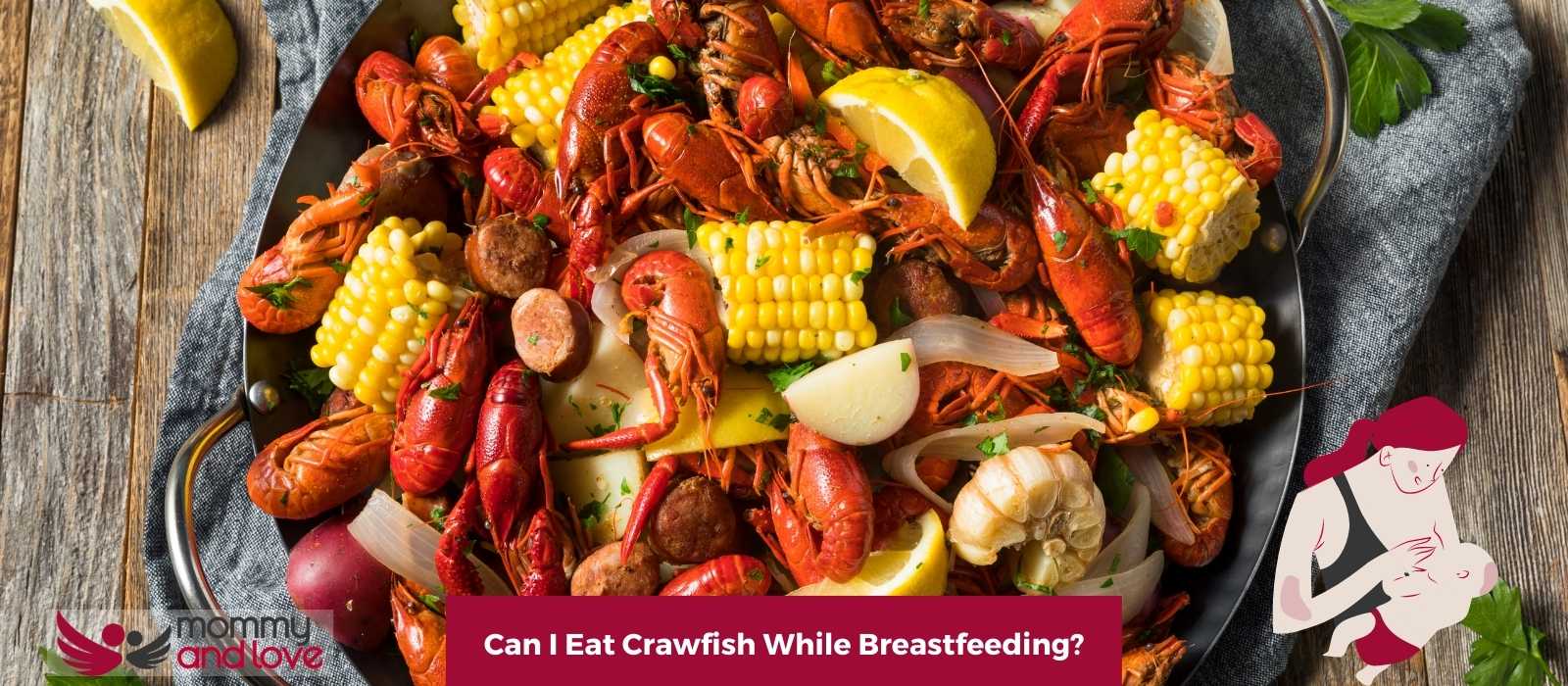Moms have long been told to avoid eating most seafood while breastfeeding because of the mercury levels. But what about crawfish? Are they safe to eat?
Crawfish are low in mercury, so they’re high on the list of the safest seafood to eat for breastfeeding moms, combine with cup noodles for a healthier breastfeeding snack.. In fact, it is one of the most recommended foods for pregnant and nursing women. So go ahead and enjoy crawfish boils while you’re nursing!
What are the benefits of eating crawfish while breastfeeding?
Crawfish are a good source of protein, vitamin B12, and selenium. They also contain omega-3 fatty acids, which are beneficial for both mom and baby. Omega-3s help boosts the baby’s brain development and can also reduce inflammation in the mother’s body. Consuming them while breastfeeding can provide all these nutrients to both mother and baby.
Are there any risks associated with crawfish while breastfeeding?

There is no evidence that crawfish pose any risks to breastfeeding moms or their babies.
However, as with all food, it’s best to eat them in moderation for a well-balanced diet. A moderate intake should provide all the nutrients you need while breastfeeding.
It is safe and fine to eat crawfish, but it needs to be fully cooked. They are a huge concern if they are undercooked.
The good news is that, unlike other fish, they are not typically eaten raw. Nevertheless, if it’s undercooked, you and your child may be exposed to bacteria, pathogens, or even parasites. In addition, you should avoid imported seafood products like fish and shellfish because mercury levels are unknown.
Also, your breast milk will not taste spicy to your breastfed baby even if you eat spicy crawfish.
How much crawfish can I eat when breastfeeding?
Cooked, low-mercury crawfish is recommended for two to three servings per week by the FDA.
Does crawfish affect breast milk?
They don’t affect the breast milk supply of breastfeeding women. However, like most foods, it can pass through your breast milk to your baby, usually within a few hours (four to six hours) after consuming them.
Proteins found in most shellfish can be a cause of an allergic reaction. In babies younger than 6 months, this is more likely to occur because their intestines become less permeable to potential allergens after that age.
Can a baby be allergic to crawfish?

Yes. Shellfish allergy is one of the most common food allergies.
You should watch your baby closely for signs of allergy, such as abdominal discomfort, fussiness, bloating, diarrhea, vomiting, rash or hives.
A severe allergic reaction such as facial swelling or difficulty breathing requires immediate medical attention. After you eat shellfish, you should avoid it if your baby shows any signs of allergy.
Don’t eat shellfish if your family has a history of shellfish allergy.
New foods are always exciting and fun but you should still be careful because certain foods have more calories and are considered common allergens.
Take Away on Crawfish for the Breastfeeding Mother
The main concern regarding seafood and fish in pregnant and breastfeeding moms is mercury intake from seafood sources. It is common for breastfeeding mothers to believe that foods such as fish high in mercury and shellfish are unsafe to eat for breastfed babies because they pass through their breast milk.
They have low amounts of mercury which makes them among the safest shellfish that pregnant and breastfeeding moms can safely enjoy, provided these foods are cooked properly.
Crawfish provides many nutritional benefits for a nursing mother. They provide healthy calories and contain good amounts of vitamins and minerals that are good for the health of both mom and baby. However, they should be consumed in moderation regardless.
Shellfish food allergy should be taken into consideration before consuming crawfish, or any shellfish for that matter. If you or your family has a history of allergy to shellfish, avoid them. Likewise, always monitor your baby for any signs of an allergy such as abdominal discomfort, hives or a rash, avoid seafood altogether and consult with your doctor right away.

This article was written by Sandra Baker – full time writer and the mother of four amazing kids (including twins!)
She’s also a breastfeeding counselor and has spent years helping new parents learn how to care for their children. When she’s not writing or caring for her children, Sandra likes to spend time reading and taking walks with her husband.




